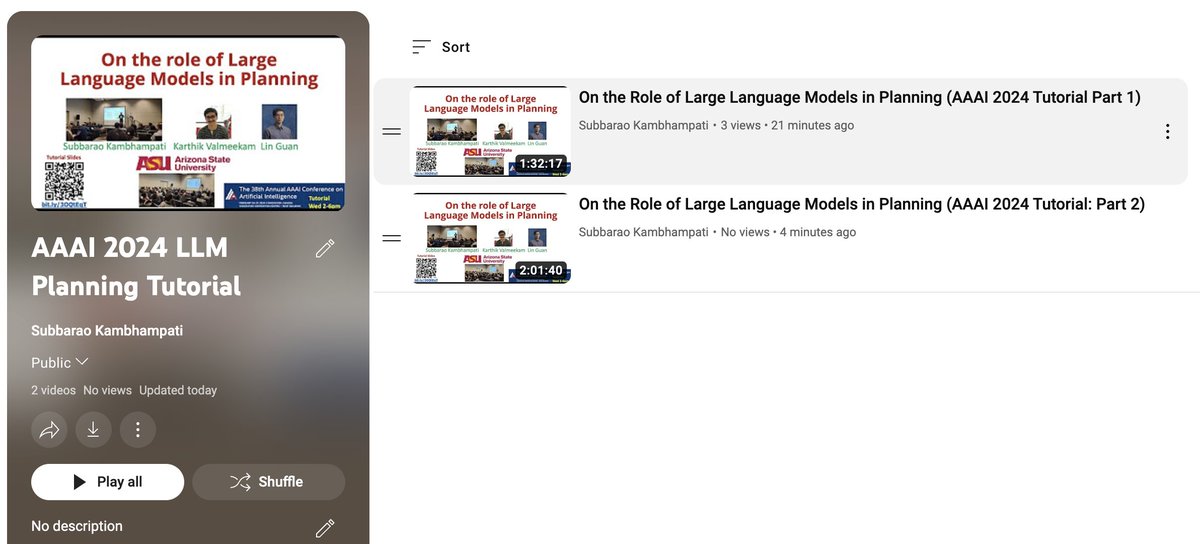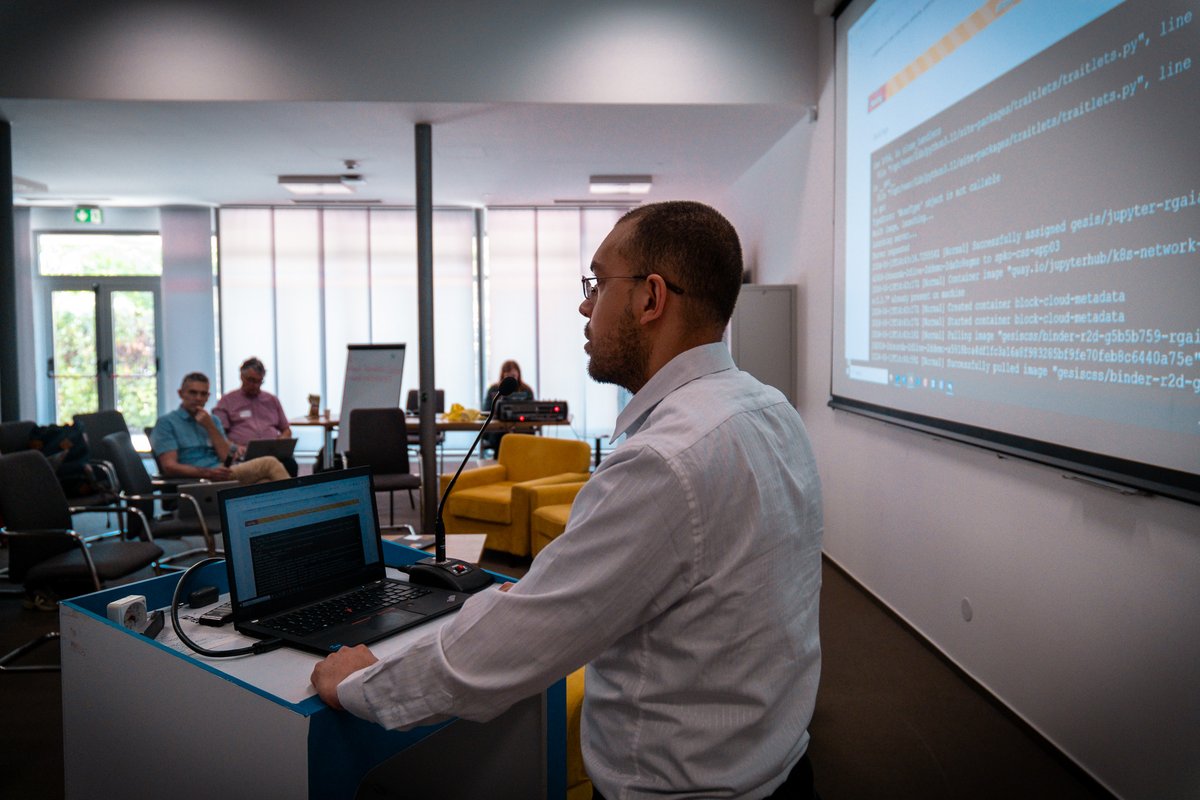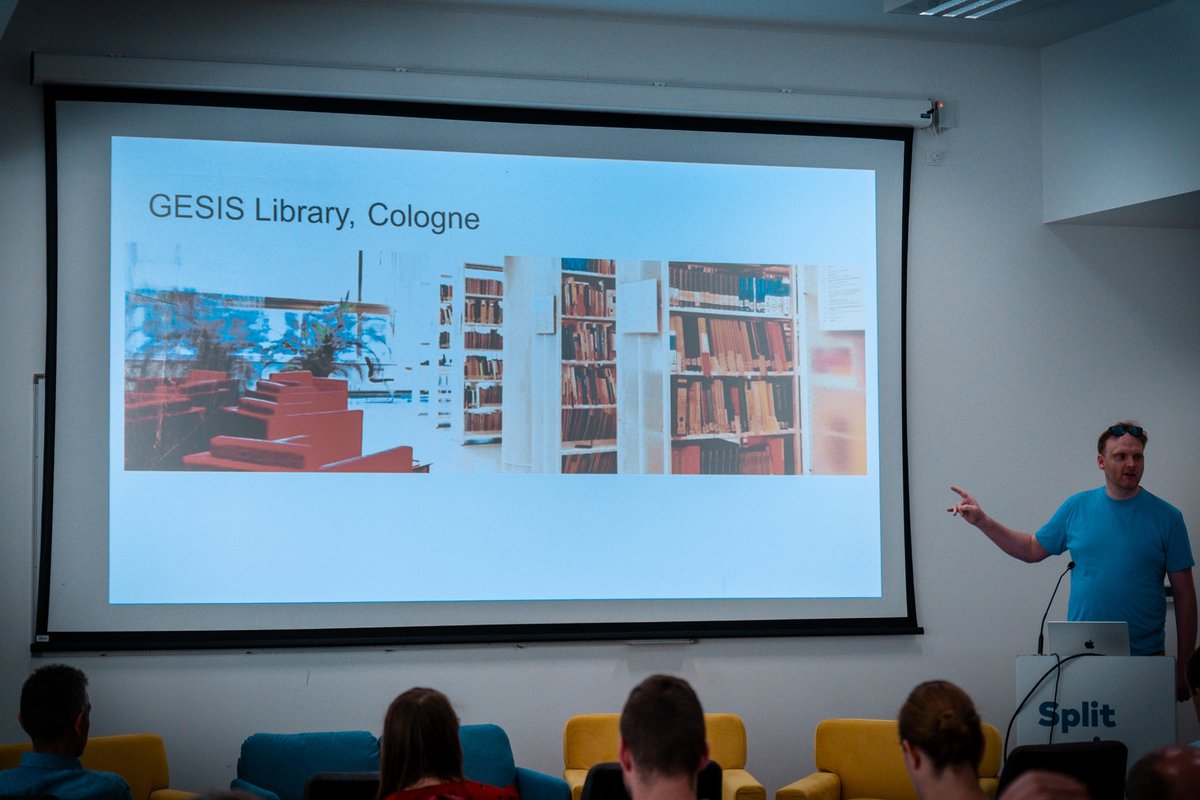
Arnim Bleier
@arnimb
Computational Social Science and #reproducibility @gesis_org
🐘 @[email protected]. Opinions my own!
ID: 39470384
http://gesis.org/person/arnim.bleier 12-05-2009 10:04:40
472 Tweet
295 Followers
307 Following


Darren Bell (UKDataService), Markus Tuominnen (Tietoarkisto), Sergeja Masten (ADP), @R_Braukmann (DANS), & Arnim Bleier (GESIS @gesisorg.bsky.social) presented uses of AI within CESSDA SPs, such as #machinelearning for #metadataenrichment, keywording, marketing, & statistical analysis.
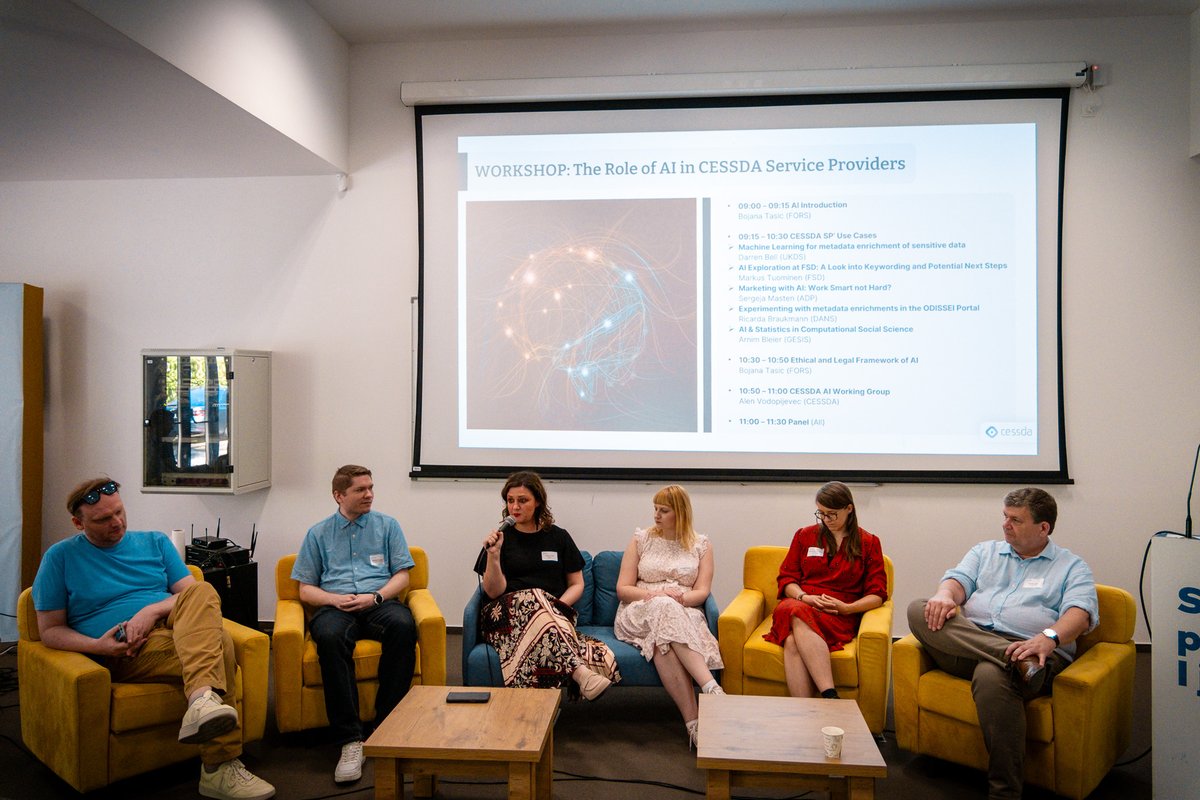

The final workshop "From MyBinder to JupyterHub: Enhancing Reproducibility in Computational Social Science" led by Arnim Bleier & Raniere Silva @[email protected] from GESIS @gesisorg.bsky.social, provided an overview of tools & strategies for enhancing reproducibility in computational social science research. Full Thread⬇
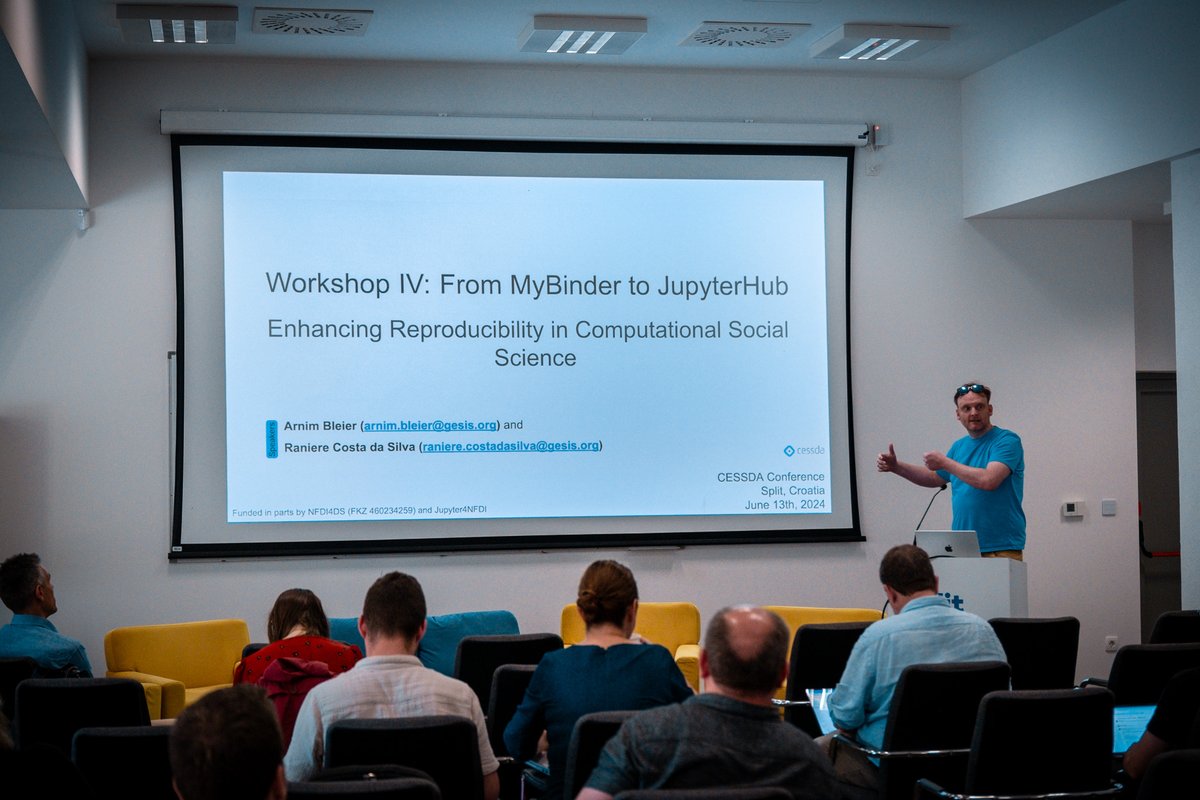




A lot of people don't realise that JupyterHub can do so much more than just serve Jupyter Notebooks – it can do cool stuff like serve Linux desktop applications in the cloud! Project Jupyter



Our #NFDI4DS Strategy Meeting kicked off today at Schloss Dagstuhl. Thanks for all the valuable input so far. Looking forward to the second day. #NFDI



New paper: What happens once AIs make humans obsolete? Even without AIs seeking power, we argue that competitive pressures will fully erode human influence and values. gradual-disempowerment.ai with Jan Kulveit Raymond Douglas Nora Ammann Deger Turan David Krueger 🧵







Scientific work shouldn’t come at the cost of stressful work environments. DW Deutsche Welle & DER SPIEGEL investigate abuse at Germany’s #MPG. Just an isolated case?🤔 #OpenScience #ScienceCulture #Abuse youtube.com/watch?v=n5nEd6…
